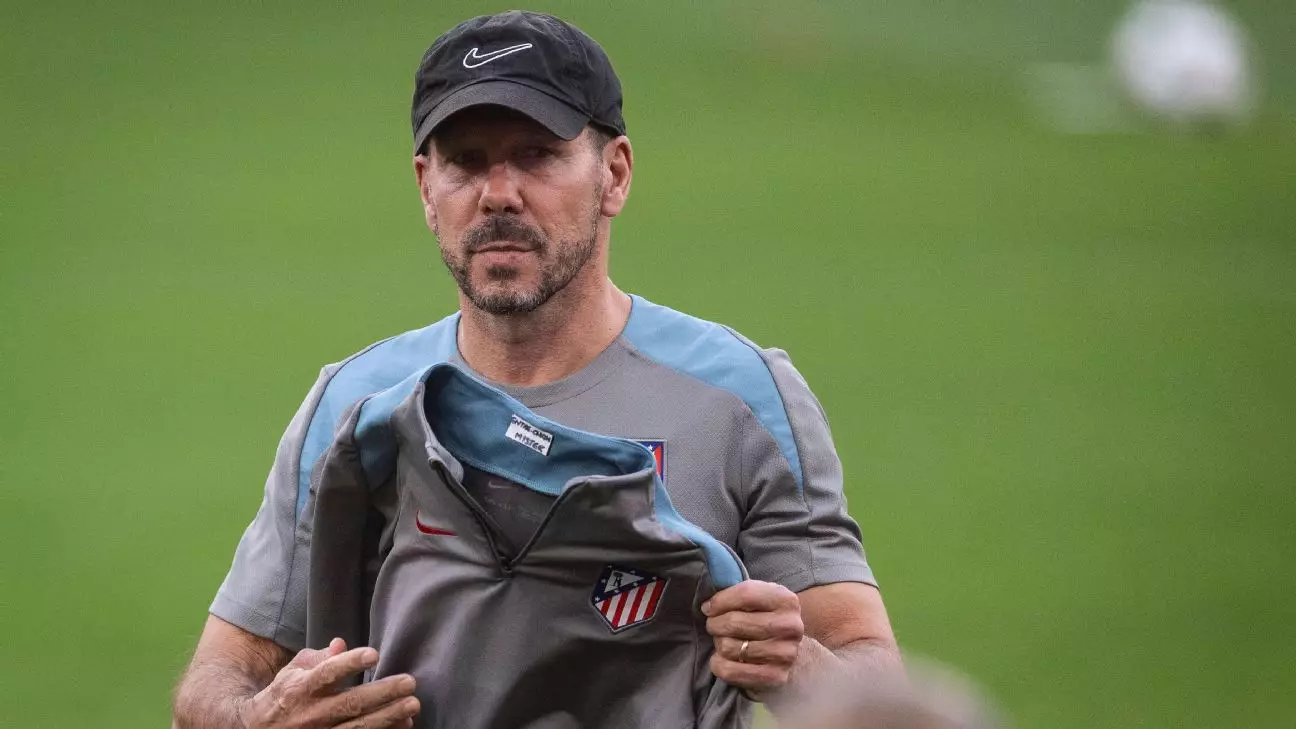In the world of professional football, the lines between passion, provocation, and sportsmanship can often blur, leading to controversy. A recent incident during the much-anticipated Madrid derby exemplifies this tension, as Atlético Madrid manager Diego Simeone vocalizes his position on players provoking fans and the repercussions that should follow. This incident not only raises questions about player conduct but also emphasizes the role of authority figures in maintaining the integrity of the sport.
During the recent Madrid derby, the atmosphere was electrified after Real Madrid’s Éder Militão scored the opening goal. However, the exuberance of the celebration turned sour as some Atlético Madrid fans, particularly from the Fondo Sur, retaliated by hurling objects at goalkeeper Thibaut Courtois. Their actions led to a suspension of the match, showcasing the extreme reactions that fervent supporters can exhibit. While the game resumed after a 20-minute pause, the incident left a black mark on what should have been a celebration of sport—highlighting how quickly a joyous moment can devolve into chaos.
This event was particularly concerning, not only because of the physical danger posed to players like Courtois but also due to the implications it brings forth regarding the responsibility of both players and fans. The behavior of fans raises the question of accountability in sports culture. If players are held responsible for how they celebrate, as Simeone seems to imply, what does that say about the accountability expected from the crowd?
After the match, Simeone’s remarks about players taking responsibility for their actions sparked heated debate. He advocated that players should “take it easy” during celebrations, suggesting that gestures aimed at the crowd could provoke hostile reactions. While it is essential for players to be mindful of their interactions with fans, Simeone’s comments appear to divert attention from the need for fans to control their responses. It becomes a contentious dialogue—should players curtail their excitement, or should fans manage their tempers and respect the game?
Simeone justified his assertions by noting the sensitivity of the current social climate, implying that harsh reactions to perceived provocations are more commonplace than ever. The Argentine manager claimed to have a clear stance, asserting that provocation ought to come with consequences. He stated, “If it is up to me, I sanction the one who provokes,” indicating a belief that players who instigate should face penalties—a statement that could have wide-ranging implications for how players approach celebrations in highly charged environments.
The aftermath of the derby saw Atlético Madrid taking immediate action, issuing a ban against an individual identified for throwing objects, while efforts to identify additional offenders were initiated. This response indicates a desire from the club to distance itself from the violent actions of a few, while also highlighting the broader challenge of mitigating fan misconduct. Nevertheless, the club’s responsibility to ensure safety extends beyond managing misbehaving individuals; they are also tasked with fostering a positive atmosphere that discourages violent behavior among supporters.
Simeone’s stubbornness in defending his comments illustrates a level of detachment from the gravity of the situation. He claimed to have been misinterpreted but chose not to amend his statements. This raises important questions regarding the influence and accountability of managers in football. While it is admirable for a coach to stand by his beliefs, one must consider if this attitude fosters a culture of blame rather than one of understanding and proactive change.
This derby incident highlights a pivotal point in football—a need for a collective understanding of responsibility among players, fans, and management alike. The escalating tensions between aggressive expressions of support and the resulting backlash from players emphasize that football is not merely a sport; it is also a reflection of societal norms and emotions. The challenge lies in creating an environment where passion does not tip into vengeful acts, ensuring that celebrations remain joyous and respectful. In this domain, dialogue and awareness must flourish in order to safeguard the integrity of the game in the years to come.

